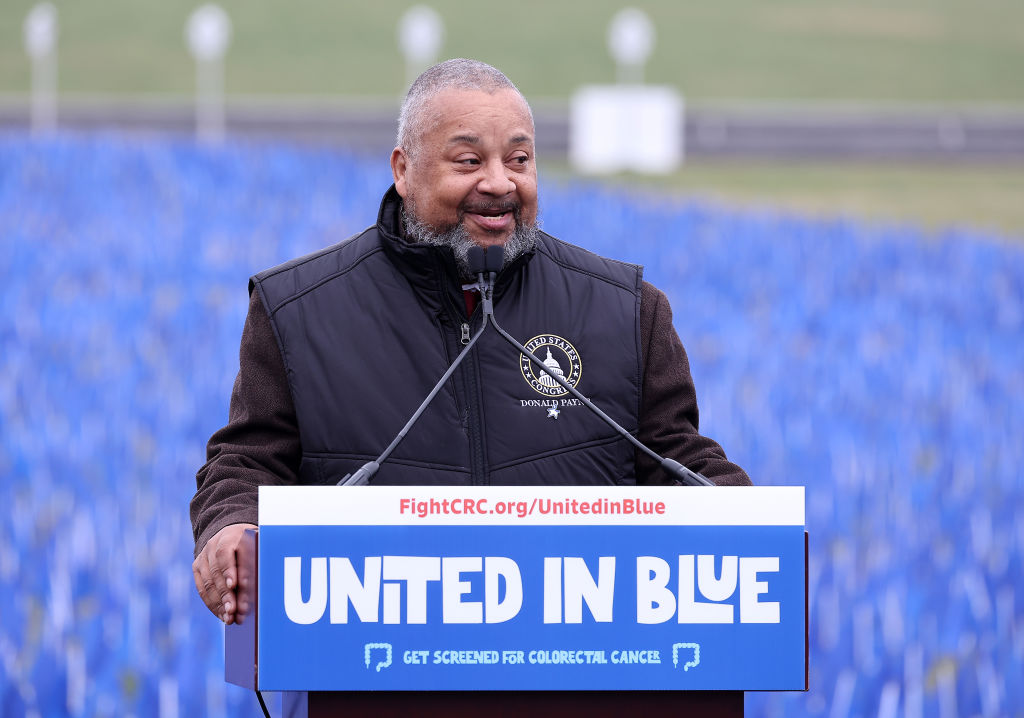The presidential election helped rewrite the final line of Lisa Loomer's new play about Roe v. Wade, the landmark 1973 Supreme Court decision legalizing abortion nationwide.
An early draft had ended: "Roe still stands."
But President Donald Trump's opposition to abortion and his pledge to appoint "pro-life" justices to the high court prompted her to tweak the last line of "Roe," now at Washington's Arena Stage through Feb. 19.
"As of this moment — Roe still stands," the play now ends.
"We now know that Roe is in real danger," said Loomer of the case, which was decided 44 years ago this month.
Loomer didn't set out to write a play that was so timely. In fact, she was skeptical when it was suggested she write about Roe. Court cases can be dry. But she said she ultimately found the case's central characters compelling.
Loomer's play, which premiered in Oregon last year, focuses on the two women at the center of the case: Sarah Weddington, the 26-year-old attorney who argued her case, and Norma McCorvey, her Texas client who wanted an abortion. McCorvey, who was known by the pseudonym Jane Roe, ultimately became an anti-abortion activist. The defendant in the case, Dallas County District Attorney Henry Wade, makes only a brief appearance.
U.S. & World
Loomer has her characters tell their own stories about how they ultimately came to divergent views on abortion and their roles in the precedent-setting case.
"How 'bout you just tell your story, I tell mine," the McCorvey character tells her attorney — and the audience — early in the play.
To prepare to write, Loomer not only studied the 7-2 decision but also the books written by Weddington and McCorvey as well as articles about their lives after the case. She watched interviews they gave over the years and reached out to Weddington, who read the script; her efforts to reach McCorvey failed. She listened to audio recordings of the case being argued before the Supreme Court, some of which gets used in the play.
As a result, theatergoers will find a lot of information packed into "Roe," and even those who think they know the outlines of the case will find themselves learning something, whether it's that Weddington and McCorvey had their first meeting at a pizza parlor or that the Supreme Court's waiting room for lawyers didn't have a women's restroom when Weddington argued her case.
The audience comes to know Weddington and McCorvey too: Weddington, who herself had had an abortion but didn't tell her client, and McCorvey, a lesbian who was hoping to terminate her third pregnancy, a child born before Roe was decided and ultimately given up for adoption.
The play doesn't dodge the uncomfortable in the story's telling. At one point, aborted fetal tissue is described as looking like "cut up chicken parts swimming in blood." And there are frank discussions of the dangers women faced before Roe in obtaining illegal abortions or attempting to end their pregnancies themselves using things like turpentine, curtain roads, and chopsticks.
For a play on so serious a subject, there's also humor. There's a female character who attempts to find her cervix. The 9th Amendment gets explained to theatergoers, "in case you slept through class." And instead of saying that a group of male justices decided the case, it's noted that "not one of them had ever been pregnant." It would take until 1981 for Justice Sandra Day O'Connor to become the first woman on the court.
Loomer said she doesn't expect the play, which will go to California's Berkeley Repertory Theatre in March, will change anyone's views on abortion. She's not asking anyone to change their mind, either, she said.
She said she hopes theatergoers will see enough of their own views reflected in "Roe" to be willing to listen to other perspectives.
"I still believe a first step we can take is to listen to each other," she said.



